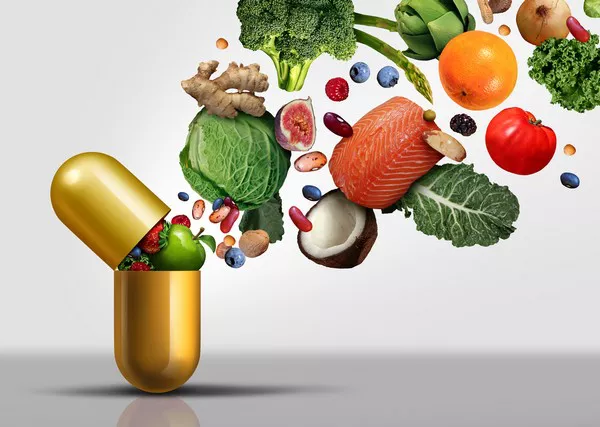Vitamins are essential nutrients that our bodies need to function properly. They are classified into two categories: water-soluble and fat-soluble. Water-soluble vitamins are those that dissolve in water and are easily absorbed by the body. In this article, we will discuss which vitamins are water-soluble and their importance for maintaining good health.
Water-soluble vitamins
Water-soluble vitamins are a group of vitamins that are easily absorbed by the body and are not stored in large amounts. They include vitamin C and the B vitamins, which are thiamine (B1), riboflavin (B2), niacin (B3), pantothenic acid (B5), pyridoxine (B6), biotin (B7), folate (B9), and cobalamin (B12). These vitamins are essential for maintaining good health and are required in small amounts on a daily basis.
Importance of water-soluble vitamins
Water-soluble vitamins play a crucial role in maintaining good health. Vitamin C is an antioxidant that helps to protect cells from damage caused by free radicals. It also helps to produce collagen, which is important for healthy skin, bones, and connective tissue. The B vitamins are important for energy production, brain function, and the formation of red blood cells. They also help to maintain healthy skin, hair, and nails.
Food sources of water-soluble vitamins
Water-soluble vitamins are found in a variety of foods. Vitamin C is found in citrus fruits, berries, kiwi, and tomatoes. The B vitamins are found in whole grains, meat, poultry, fish, eggs, dairy products, and leafy green vegetables. Folate is found in leafy green vegetables, beans, and fortified grains. Vitamin B12 is found in animal products, such as meat, fish, and dairy products.
Deficiency symptoms of water-soluble vitamins
Deficiency of water-soluble vitamins can lead to various health problems. Vitamin C deficiency can cause scurvy, which is characterized by bleeding gums, bruising, and fatigue. Deficiency of the B vitamins can cause various symptoms, such as fatigue, anemia, skin problems, and nerve damage. Folate deficiency in pregnant women can cause birth defects in the developing fetus.
Recommended daily intake of water-soluble vitamins
The recommended daily intake of water-soluble vitamins varies depending on age, gender, and other factors. The recommended daily intake of vitamin C for adults is 75-90 mg per day. The recommended daily intake of the B vitamins varies depending on the specific vitamin. For example, the recommended daily intake of thiamine is 1.1-1.2 mg per day for adult women and 1.2-1.4 mg per day for adult men.
What are the potential risks of taking too many water-soluble vitamins?
While water-soluble vitamins are important for maintaining good health, taking too many of them can be harmful. Because they are not stored in the body to the same extent as fat-soluble vitamins, excess water-soluble vitamins are typically excreted in the urine. However, taking very high doses of certain water-soluble vitamins, such as vitamin C or niacin, can cause adverse effects such as nausea, diarrhea, and stomach cramps. To minimize these risks, it is important to follow the recommended dosages for water-soluble vitamins and avoid taking excessive amounts of supplements. Pregnant women and individuals with certain medical conditions should also talk to their healthcare provider before taking any vitamin supplements.
What are some common sources of water-soluble vitamins in the diet?
Water-soluble vitamins can be found in a variety of foods, including fruits, vegetables, whole grains, lean protein, and dairy products. Some common sources of water-soluble vitamins include citrus fruits, strawberries, kiwi, bell peppers, broccoli, spinach, whole grains, poultry, fish, eggs, and dairy products. To ensure that you are getting enough water-soluble vitamins in your diet, aim to eat a variety of nutrient-rich foods and include at least five servings of fruits and vegetables per day. You may also consider taking a multivitamin or B-complex supplement if you’re not getting enough vitamins through your diet alone. However, it is important to talk to your healthcare provider before taking any vitamin supplements, especially if you have certain medical conditions or are pregnant.
Conclusion
Water-soluble vitamins are essential for maintaining good health. They include vitamin C and the B vitamins, which are thiamine (B1), riboflavin (B2), niacin (B3), pantothenic acid (B5), pyridoxine (B6), biotin (B7), folate (B9), and cobalamin (B12). These vitamins are found in a variety of foods and are required in small amounts on a daily basis. Deficiency of water-soluble vitamins can lead to various health problems, and the recommended daily intake varies depending on age, gender, and other factors.
Related Topics:
-
Water-Soluble Vitamins: List, Health Benefits & Food Sources
-
Which Vitamins Are Not Soluble in Water: A Comprehensive Guide

